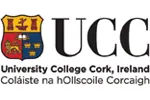

| The award | How you will study | Study duration | Course start | Domestic course fees | International course fees |
|---|---|---|---|---|---|
| BSc (Hons) | Full-time | 4 years | September | EU 3000 | EUR 3000 |
Overview
Earth Science investigates the functioning, development and use of Earth's physical environment and involves the study of its atmosphere and oceans, its surface processes, and its crust and interior.It also involves the study ofEarth's natural and physical resources, andincorporates interdisciplinary subjects across the traditional disciplines of geography, geology, geophysics, oceanography and biological sciences.
The coursefocuses on applying knowledge of these disciplines to understanding and solving problems. The subject's growth has been in response to changing demands in industry and the practical needs of interdisciplinary scientific research, together with the needs arising from an increased community awareness of the Earth, its environment stresses and patterns of change.
Course Details
Year 1 Modules:
BL1002Cells, Biomolecules, Genetics and Evolution (5 credits);
BL1004Physiology and Structure of Plants and Animals (5 credits);
BL1005 Habitats and Ecosystems(5 credits);
CM1003Introductory Chemistry for Environmental Scientists (10 credits);
ER1006Applied Earth Systems (5 credits);
EV1002The Environment (5 credits);
GG1010Introduction to Physical Geography (5 credits);
GL1001Introduction to Geology (5 credits);
GL1004Geological Evolution of Ireland (5 credits);
MA1001Calculus for Science I (5 credits);
PY1009Physics for the Environment Sciences I (5 credits)
Year 2 Modules:
Core
Field Training; Quaternary Environments and Geomorphology; The Atmospheric Environment; Biogeography; Geographical Research Methods; Crystallography, Optics and Mineralogy; Sedimentological Processes and Sedimentary Petrology; Igneous and Metamorphic Petrology; Structural Geology; Fossils as Living Organisms; Geohazards and Research Skills
Electives
The Environment and Human Health; Environmental Archaeology; Calculus for Science (part 2); Ecological Plant Physiology; Fluids; Physics for the Environmental Sciences; Introduction to Biostatistics; Introductory Programming in Python
Year 3 Modules:
Core
Field Training; Earth Science Literature Review; Geoinformatics; Geographies of Environment and Sustainability; Coastal and Marine Geomorphology; Climate Variability and Change; Environmental Economic Geography; Applied Structural Geology; Sedimentary Environments; Micropalaeontology and Palynology; Geological Map Interpretation
Electives
Introduction to Biostatistics; Introduction to Environmental Archaeology; Heritage Management and Archaeology; Introduction to Energy Engineering; Human Remains for Archaeologists; Archaeo-palynology; Conservation Biology; Valuing the Environment
Year 4 Modules:
Core
Research Project; Advanced Geographical Information Systems; Environmental Remote Sensing; Applied Geophysics; Climate Variability and Change
Electives
Practical Offshore Marine Science; Earth Science Work Placement; Petroleum Geology and Basin Analysis; Regional and Local Planning Issues and Policies; Food Geography; Geohazards and Research Skills; Advanced Field Geoscience Techniques; Exceptional Glimpses of Ancient Life; Stratigraphy; Geological Map Interpretation; Geography as Human Ecology
See the College Calendar for additional information on the Programme and the Book of Modules for further details on modules.
Fact File
Course Code: Refer to CK404
Course Title: Earth Science
College: Science, Engineering and Food Science
Duration: 4 years
Teaching Mode: Full-time
Qualifications: BSc (Hons)
NFQ Level: Level 8
Costs: Full-time EU/EEA/Swiss State undergraduate students may be exempt from paying tuition fees. The State will pay the tuition fees for students who satisfy the Free Fees Criteria. In 2016/17 the Student Contribution Charge will be EUR 3,000 and the Capitation Fee will be EUR 165.Some modules incorporate practical laboratories and for these you may be required to purchase basic safely items such as a laboratory coat or goggles. Other modules may require a kit of components to be purchased. There will be a cost of EUR 1,000 over the course of the four years for field trips.
2017 Entry Requirements: Refer to CK404
Entry Points: 2016: 430 (CK404) Points may vary each year.
Course Practicalities
Lecture/lab/practical hours:Daily lectures, laboratory and computer classes and small group teaching take place throughout your four years of study.
Field trips:Field trips take place during term time and on occasion during the holidays — such field trips are compulsory and you are expected to attend. Fieldwork for the research project takes place during the summer holiday and into Year 4 as necessary, and can be in Ireland or overseas, depending on the subject area.
Assessment
Written exams will take place before Christmas and in May. Not all modules will have formal examinations. Many modules use other types of assessment. Some modules are assessed entirely though projects and class assignments.One module per year is field-based.
Later years of the course are also assessed by exams that require more detailed written essays, drawing together learning across a range of modules.
The dissertation is worth 25% of the final year.
Students are assessed on valuable transferable skills that include written, mathematical, problem solving and oral assignments, many of which are completed individually but some done in small groups.
Application Procedure
Refer toCK404.
Further Contact Information
School of Geography and Archaeology
T: +353 (0)21 490 2804
W:www.ucc.ie/en/geography
2017 Entry Requirements: Refer to CK404
Entry Points: 2016: 430 (CK404) Points may vary each year.
Contact University College Cork (UCC) to find course entry requirements.
Below are some suggested courses at other providers that you may also be interested in:
Preparatory Courses in English for Degree Studies (Medical, Business, Architecture and Engineering, Psychology, English and American Studies) UG:Foundation, UG:Foundation, UG:Foundation
University of PĂ©cs
Find out moreIf you do not meet the entry requirements for this course then consider one of these courses from another institution:
There are 338 other courses listed from University College Cork (UCC). A selection of these are displayed below:
Join the Сưłć´«Ă˝ email list and never miss a chance to turn your study abroad dreams into reality!

Find out more about studying in Ireland